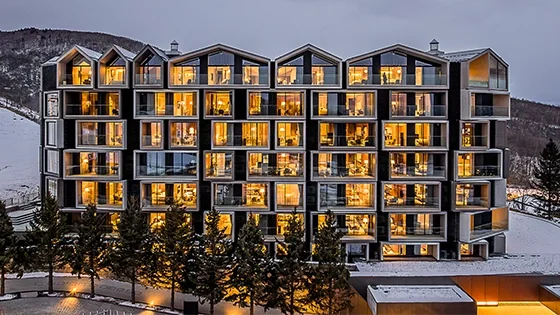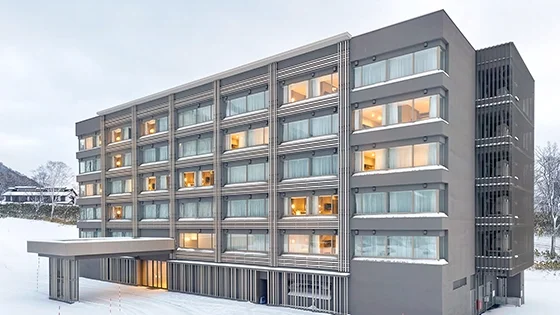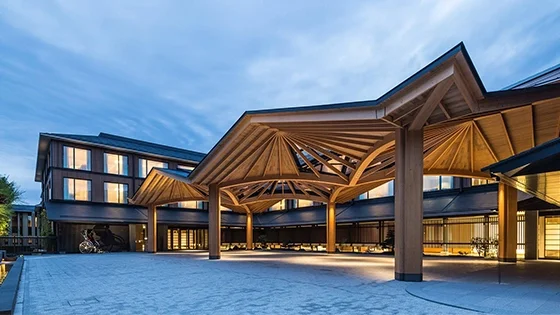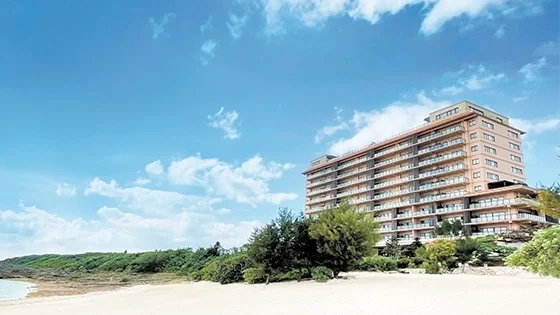What Is a “Hotel Residence”? A new form of resort real estate ownership that lets you enjoy a luxurious resort lifestyle while earning real estate income
.webp)
The Appeal and History of Hotel Residences
Have you ever dreamed of owning a “private retreat” in an extraordinary resort destination—one that you could enjoy whenever you like?
And what if that very retreat could generate income for you while you're not using it, simply by welcoming other guests in your absence?
This ideal is made possible by a unique real estate model known as a “hotel residence,” sometimes referred to as a “hotel condominium.”
The origin of the hotel residence dates back to the 1970s* in the United States, where it emerged as a hybrid real estate product: one that retains the structure of property ownership, while also offering the services and benefits of a hotel stay.
From the outset, it attracted interest from high-net-worth individuals seeking tax advantages or a second home, prompting many luxury hotel brands in cities and resort areas to embrace this innovative concept.
*There are multiple theories regarding the origin of hotel residences.
In Japan, the model began to gain traction in the 1990s, and in recent years it has garnered renewed attention amid growing inbound travel and the rise of “workation” lifestyles.
In recent years, hotel residences have also attracted attention as a new form of vacation home ownership, particularly due to the ease of maintenance they offer.
This has led to strong interest from affluent individuals and investors—both domestic and international—in top-tier resort destinations such as Niseko, Okinawa, and Kyoto.
For those seeking a property that combines the fulfillment of a personal resort lifestyle with economic rationality, this may very well be the ideal choice.
Three Key Advantages of Hotel Residence as an Investment Asset
.webp)
1. Professional Maintenance Preserves Asset Value.
One of the most significant advantages of owning a hotel residence is the minimal maintenance required.
Daily housekeeping, linen changes, facility inspections and repairs, and even security measures are all handled by the hotel operator.
Compared to owning a private vacation home, the burden of property management is dramatically reduced.
This hotel-level management also brings an additional benefit: the property’s condition is consistently kept in excellent shape, which in turn helps preserve its value as an asset—particularly in terms of rental income potential and resale value.
Of course, factors such as the popularity of the area and the availability of competing properties also influence asset value, so nothing is guaranteed.
However, the reduced risk of wear, damage, or criminal incidents offers great peace of mind for owners who may live far from the property.
2. Generate income during unused periods by leasing your unit as part of the hotel’s inventory.
Even if you own your “go-to room” at a favorite destination, many people find they only visit a few times a year. During the unused periods, the space remains vacant—incurring taxes and maintenance costs without generating any return.
With a hotel residence, however, when you’re not using the unit, it can be rented out as a hotel room to guests.
For every night it is booked, you earn a portion of the accommodation revenue, after the hotel deducts operational expenses such as housekeeping, maintenance, and management fees.
In this sense, a hotel residence is “an asset that generates income even while you’re away.”
Rather than letting your “go-to room” sit idle, this model keeps the asset actively working—an exceptionally efficient way to own.
In other words, a hotel residence allows you to enjoy a luxury resort lifestyle while also earning income (rental yield) just by owning it.
This is why hotel residences are often referred to as a “hybrid asset”—they deliver both lifestyle value and financial returns.
※Please note: If you choose to participate in the hotel rental program, there may be restrictions on the number of days you can use the unit for personal stays.
Terms vary depending on the property, so it is important to confirm the details in advance.
3. Exclusive advance booking periods for owners, even during peak seasons when reservations are typically difficult to secure.
It’s no surprise that hotels in popular resort areas or during peak travel seasons quickly reach full occupancy.
This is especially true during extended holidays or the New Year's period, when even early planners may find it difficult to secure a room.
However, hotel residence owners are typically granted exclusive advance booking privileges, allowing them to reserve their unit earlier than the general public.
This ensures owners can enjoy a relaxed and stress-free stay, even during busy seasons—an undeniable advantage of ownership.
※ Please note: advance booking periods may have set deadlines. If you have preferred dates, we recommend confirming availability as early as possible.
A Curated Collection of Hotel Residences Presented by Mitsui Fudosan Realty
Our offerings will continue to expand, focusing on sought-after destinations such as Niseko, Kyoto, and Miyako Island. The following is just one example.




A hotel residence is a unique asset that serves both as your “go-to retreat” for enjoying resort living and as a profitable “income-generating property”.
If you are interested, we would be delighted to provide you with detailed property information. Please feel free to contact us.

